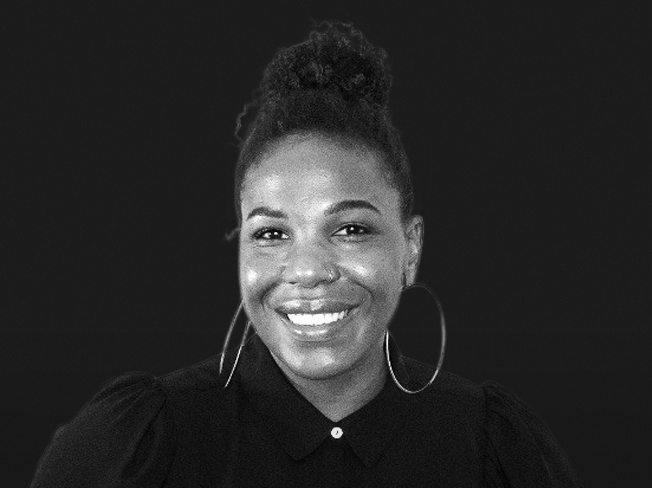Social Impact Marketing, the Right Way | Tory Burch Foundation
Social Impact Marketing, the Right Way
How to highlight your company's values and purpose, address missteps and more.
25,535 Views
3 Likes
7 min read
Link copied to clipboard
Your company’s brand is about the way your business shows up in the market: who it speaks to and how it tries to reach its audiences. As companies and brands increasingly become part of our lives, customers believe their favorite companies should make the world a better place.
CMO advisor and inclusive marketing strategist Lola Bakare joined our webinar series to discuss responsible marketing, which she defines as “the practice of ambitiously addressing systemic inequities, and social impact opportunities in ways that simultaneously deliver outsize business results.”
“REFRAME THE RISKS.”
Founders and marketers sometimes view social impact marketing as inherently risky. Bakare urged our audience to “reframe the risks”, reassuring our community and highlighting the possibilities.
Risk: The team doesn’t reflect a campaign’s intended audience.
Reframe: “It’s about progress,” Bakare said. “And while you’re working on creating progress in your own house, that doesn’t mean you can’t still be doing things in ways that make an impact on your audience and your customers.”
Don’t wait until you have the “right” demographics on your team but do make an earnest effort. Consider working with consultants or contractors with relevant lived and professional experience while you work toward staffing goals. “I firmly believe that we only hold ourselves back when we try to wait to do good until we have perfect elsewhere,” she said.
Risk: Your company will get “canceled” if the messaging misses the mark or upsets a customer segment.
Reframe: “Those of us in this room, we really need to break through that idea of acknowledging even the concept of being canceled because it doesn’t really exist if you’re willing to interact [and] you’re willing to make an apology,” Bakare explained. Instead of seeing impact-driven messaging as a burden, embrace the unique responsibility and power you have to address systemic inequities. Remember that while getting canceled isn’t real, feedback and accountability are. If a subset of your customers tells you they’ve been harmed by your messaging, acknowledge that and course correct.
Risk: Some leaders believe social impact initiatives will distract from bottom line priorities.
Reframe: Companies with clear values are actually more profitable than ever. Some leaders may be concerned about a conservative backlash, but whatever backlash that arises comes from a loud minority. In fact, a Sparks & Honey survey found that 74% of customers believe brands should help people see beyond stereotypes. (Bakare serves on the Sparks & Honey board) The same survey found that customers would opt for a product that’s an inclusive alternative, even if they weren’t part of the community directly impacted by the company’s mission. Your sales and influence can reach further than your target community because you’re teaching customers as well as offering a great product. “We’re not just meeting people where they are–a phrase that is said a lot, especially in social impact circles [that] I firmly disagree with–we’re showing people where they should be,” explained Bakare.
IDENTIFY YOUR SOCIAL IMPACT PRIORITIES.
With so many troubling headlines and systems of oppression coming to the forefront in new ways, how can entrepreneurs know what to prioritize? “I think one of the hardest things right now, especially for small business owners, is that you’re expected to be doing everything,” Bakare acknowledged. “You’re expected to have a sustainable supply chain, you’re expected to have inclusive marketing, you’re expected to get an ‘A’ on every single thing that you do. But I think it all starts with embracing the reality that progress is not linear.”
Bakare offered three questions to help small business owners develop their social impact values.
- What are your brand’s societal debts? Past or present, in what ways has your brand, category, or industry contributed to societal harm?
- What functional benefits and emotional promises can align to meaningfully address relevant societal debts? The answers to these questions are your impact insights.
- How can addressing an impact insight deliver incremental commercial success?
Giving these questions some thought will help you choose issues that are most relevant to the brand and the communities the brand serves. You will also be better able to separate your personal values and the ones in the news from your brand messaging. Even if you don’t think there is a way to make social impact a part of your business, think about who’s underrepresented in your industry as a start.
DEFINE YOUR TRIPLE TOP LINE TO INCREASE YOUR BOTTOM LINE.
Companies interested in social responsibility should start with a triple top line: social impact, reputation and commercial success. The interplay of these elements contributes to the business’ revenue.
Your social impact initiatives should do one or more of the following: foster diversity, enable inclusion, advance equity, cultivate belonging or support sustainability. The impact should also be measurable.
A brand’s social impact initiatives will elevate its reputation. That good reputation contributes to word of mouth and eventually earned media like press or social media posts raving about your product or service, as well as the way you stick to your values. Earned media is free for your company, which reduces your expenses and can boost sales.
The commercial impact of your social impact positioning will increase as you continue to connect with customers most excited about your values. Commercial impact can include increased sales, customer acquisition and retention.Values-based investors may start to notice as well, or there may be grants and other funding opportunities for your business according to its demonstrated values. The profit increase then incentivizes you to build on your earlier success and continue your social impact initiatives and messaging.
SHARE YOUR VALUES WITH AUTHENTICITY.
Consumers can usually tell when a company’s social impact messaging is hollow or performative. Bakare urges clients to make sure their initiatives are guided by conviction, candor and consistency so that they maintain their authenticity.
Conviction
“You have to believe in what you’re standing for enough that you’re willing to give something up. Enough that you’re willing to take a risk to say the thing that might not be popular,” Bakare explained. Your conviction will also help you in times of crisis and in avoiding burnout. The expectation that CEOs or founders have to speak out on every current event can lead to enormous pressure to please everyone. But when you try to please everyone, you please no one. It’s also not good for you.“When you start to feel pressure, like maybe [you’re] not doing enough, that’s a clear sign that something is off. Because there’s only so much that you can do in one day,” she explained. Taking stock of your successes will help keep your firm in your convictions.
Your conviction can also help if, for example, you receive harsh social media comments about what your business is doing. Use this as an opportunity to point to what your company is doing to advocate for people. You can also simply say “thank you” and return to the objection at a calmer time. “You’d be surprised how quickly those two words can shut down a conversation because a lot of times people just want to be heard.” Thank you also gives you a moment to pause, which is okay and necessary. Bakare soffered a crucial reminder on protecting your time and energy: it’s ultimately unproductive for a founder to be in every social media argument.
Candor
Be honest (and loud!) about your measurable impact. Addressing a mistake you’ve made is another way to practice candor–and build trust with customers in the process. “Especially to small business owners, this is something that can’t be underscored enough, because in the beginning, trust is really the foundation of your survival,” Bakare emphasized.
Consistency
Keep showing up. Make sure your key values are always present in your messaging.
Shape your messaging and initiatives so that they speak to and respect a community’s real concerns. “When you are trying to engage with an audience, you want to really connect with them,” said Bakare. “You want to be of them, you want to involve them, but you don’t want to do things that are sort of telling them what to believe.” She also explained that responsible social impact campaigns that resonate with consumers will solve real problems, tell real stories, create real opportunities, or influence real policies.
She urged our community to strive toward making change that goes beyond just their business. “If you can be a catalyst that actually creates a framework that changes how things get done in an industry…that is the gold standard.”
Help an entrepreneur by upvoting




